Inexpensive But Complete Books for C++ and Games Programming and more
We offer a complete series of C++ programming books from the beginning level through advanced level as well as C# programming and assembler language for IBM mainframes. With these, you can easily and effectively teach yourself C++ programming, Microsoft Foundation Class (MFC) C++ programming, Games programming in C++, and C# programming as well.
If you are teaching yourself, check out my blog article on the right sequence you should follow through these books.
So what’s Free? Every book has a complete, unedited chapter that you can read to see for yourself just how good the book is and if it fits your needs. A detailed table of contents is also available for each book.
Check out the free sample data structure classes and sample programs and games from the Games and Windows Programming ebooks. See for yourself what you can learn to do!
Free Debugging C++ lectures and samples used in the demos.
C++ Programming Books
Studying these in sequence will take you from knowing nothing about C++ programming all the way up through fancy Windows Microsoft Foundation Classes MFC programming and into games programming as well!
 C++ for Computer Science and Engineering
C++ for Computer Science and Engineering
This beginning book in C++ Programming assumes that you know nothing about C++ and even programming. Highly readable, the book teaches you the fundamentals of the language, complete with many complete sample programs.
 Beginning Data Structures in C++
Beginning Data Structures in C++
This is the second book in the C++ programming series and assumes that you know the basics as covered in C++ Programming for Computer Science and Engineering. Highly readable, the book teaches beginning data structures. Classes are introduced, but at the basic level. Some of the sample programs are quite interesting, but all are complete programs.
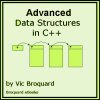 Advanced Data Structures in C++
Advanced Data Structures in C++
This is one of two possible third books in the C++ programming series and assumes that you know the basics as covered in Beginning Data Structures in C++. Highly readable, the book teaches the more complex advanced data structures with a more in depth study of classes. Some of the sample programs are quite interesting, but all are complete programs. Note: the C++ Object Oriented Programming book covers OOP more completely than this text.
 C++ Object Oriented Programming
C++ Object Oriented Programming
This is one of two possible third books in the C++ programming series and assumes that you know the basics as covered in Beginning Data Structures in C++. Very readable, the book teaches nearly everything about classes and more robustly than the Advanced Data Structures in C++ does and in greater depth. Many sample programs illustrate the principles. This is the launching pad book for all of the other more advanced books, including those dealing with game programming and Windows programming.
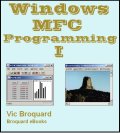
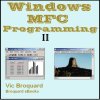 Windows MFC Programming I and Windows MFC Programming II
Windows MFC Programming I and Windows MFC Programming II- With your good knowledge of Object Oriented Programming in C++, you are ready to tackle true pay dirt: programming with the Microsoft Foundation Classes. The first book teaches you the basics, while the second thousand page book covers very advanced topics. Completing these books will allow you to write most all kinds of Windows applications! A Windows programmer is a very rare person indeed! The free Hunter Collection Manager program is an example of Windows MFC programming.
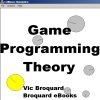 Game Programming Theory in C++
Game Programming Theory in C++
How do you write a game? You’ve got ideas and a design, but how do you tackle the problem? This is answered in this book. To get the most out of it, you should be familiar with OOP classes as covered in either Beginning Data Structures in C++ or in C++ Object Oriented Programming. Some of the sample programs are graphical in nature. To get the most out of these, you should be familiar with Windows MFC Programming I as well, though that’s not required. Very readable, the book teaches you about the physics behind games as well as their design. Robust sample programs illustrate the principles.
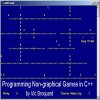 Programming Non-graphical Games in C++
Programming Non-graphical Games in C++
Armed with your game design and theory worked out, just how do you program a game? How are turns handled? All these and more are answered in this book. The focus is on the mechanics of just how game systems are handled, not the fancy graphics side. Once you have the mechanics worked out, then you can easily add in the graphics side, but you best get through Windows MFC Programming I first. To get the most out of it, you should be familiar with OOP classes as covered in either Beginning Data Structures in C++ or in C++ Object Oriented Programming. The many samples use a simple DOS window, placing the focus on just how the game mechanics are handled. Quite readable, the book teaches you how to handle many kinds of games.
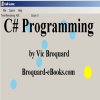 C# Programming
C# Programming
Learn to code in the new C# language. DOS applications, Windows applications, and Internet applications are covered in this complete book. Because of the wide coverage, it is recommended that you are already familiar with OOP via either Beginning Data Structures in C++ or in C++ Object Oriented Programming. Additionally, you should be familiar with basic Windows applications via Windows MFC Programming .
 Assembler Language Programming for IBM Mainframes
Assembler Language Programming for IBM Mainframes
Learn to code in the assembler language for IBM mainframes. This book covers beginning, intermediate, and advanced programming topics.











